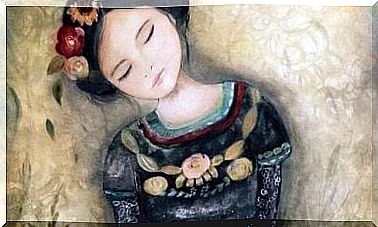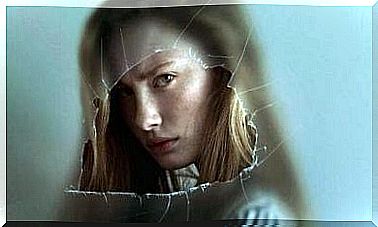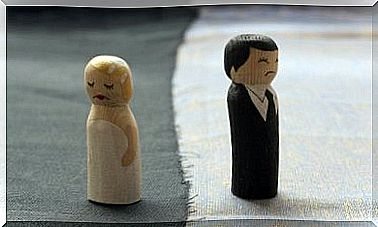Tarantinos Once Upon A Time In Hollywood
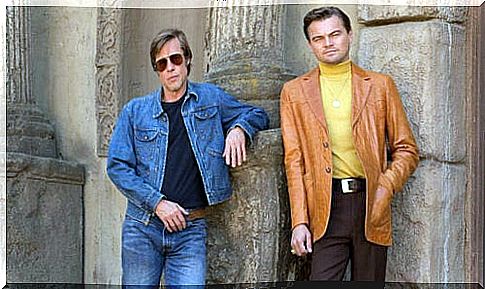
Once Upon a Time in Hollywood is the latest film by acclaimed director Quentin Tarantino. The trailer left people wondering what to expect, but once again, Tarantino managed to surprise his audience with an ingenious retelling of the past.
Tarantino has done it again. In this constantly impatient world we live in, he has managed to get people into the cinema and enchant them there for almost three hours. No one in the audience checked their phones because everyone was so engrossed in the movie.
Tarantino has given us yet another diamond, an ode to the seventh art, without pretense or crazy inventions. Once upon a Time in Hollywood is the latest film by a director who has spent decades making his mark on the collective imaginary.
When any artist does something that reflects what he sincerely feels, it can be seen. Eventually, Tarantino has an audience that is impatiently waiting for his next film, and he has enough money to make exactly the films he wants.
He doesn’t care if what he does is “right” or if it’s just anger. He entertains himself with his influence and his fetishes and rewrites the story. Tarantino interprets what has already happened, but as it could have been.
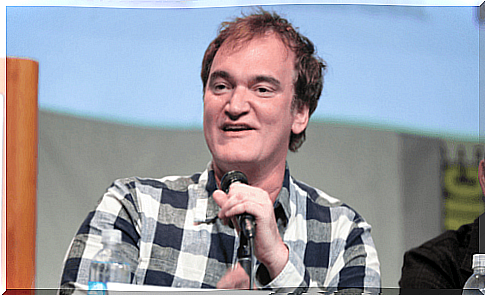
Always squeeze the lemon
Once Upon a Time in Hollywood is proof that not everything has been said and done and that commercial movies are not the same. It shows the world that some people are still willing to let themselves be led away by a story for a few hours.
Many feel that Tarantino made this film for his own sake, and no one else’s. Therein lies the key to how the story unfolds. Unlike his previous film, the redemption comes only at the very end of the film.
Intertextuality is the key in Tarantino’s films
Quentin Tarantino learned about movies by watching movies. He buried himself in the classics, which they long ago forgot and no one bothered to see. This is his inspiration for his own works. He shows his audience that art is everywhere.
It was clear from the beginning that Tarantino fills his films with what he likes. From the music to the constant movie references, watching one of his movies is always an insight into the man’s own life and mind.
Tarantino’s films can teach you about the history of the film. They might make you curious enough that you even start researching, watching old westerns or going all in on kung fu movies. On your journey, you will discover some true treasures that the film industry has wanted to hide.
Art goes much deeper than that which is modern or up to date. It goes much further than to politics. Art is a category in itself, and it has value in itself. Therefore, you may need to give it a try when a director you like comes up with a new movie.
The big question mark
The trailer for Once Upon a Time in Hollywood left the audience with more questions than answers. Even hard core Tarantino fans were not sure what to expect.
Would the film be about Charles Manson and the murders committed by The Manson Family cult? Would that be fiction? A tribute to the old western actors who fled to Europe in search of better roles? Yes…. and no. Once Upon a Time in Hollywood is all that, and more.
The film is packed with references. While it’s impossible to catch them all, it can be fun to talk to friends about who got which ones. People’s inherited culture is different, so one tends to notice some things and ignore others.
Quentin Tarantino has made a film about everything he likes – whether it makes sense or not. After all, he told a story that could have been true… .. or not.
Hollywood’s heyday appears in Once Upon a Time in Hollywood
Even the title refers to one of Tarantino’s favorite filmmakers, Sergio Leone. Two of Leone’s films have titles reminiscent of Tarantino’s most recent films.
Leone is considered to have invented the spaghetti western genre, and his last film in this genre was titled Once upon a Time in the West. The second, Once Upon a Time in America , was supposed to have been Leone’s major breakthrough in the United States, but it was not well received.
Tarantino’s films contain nostalgic elements from the very beginning. He shows how Hollywood, idealized by actors, ends up becoming a hostile environment. An environment that forces them to adjust and accept what they have been given when they reach a certain age.
It is a bizarre fable of fantasy and reality at the same time. Once Upon a Time in Hollywood shows the worst side of the film industry.
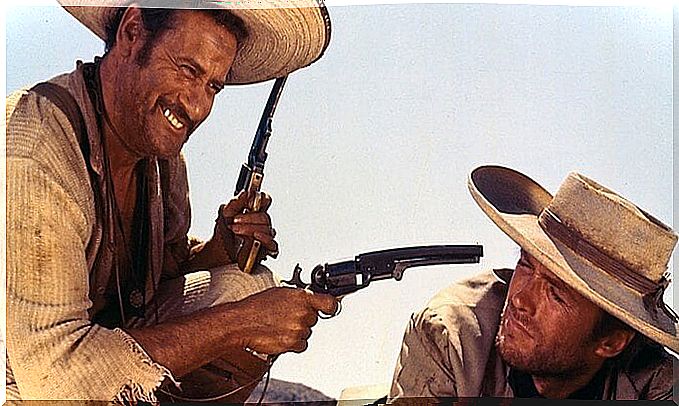
All this takes place in the midst of a well-known and tragic story; the murder of Sharon Tate. In the film, we meet her as a cheerful young woman as she sits among the audience and sees herself in one of her films.
The feelings of free play in Once Upon a Time in Hollywood
The audience, of course, knows of her tragic fate and has pity on her. It is also easy to sympathize with another character, an actor, such as. Clint Eastwood, who experienced the consequences of getting older in an industry that put him in a cage.
The film exudes nostalgia and is reminiscent of a time of greatness, but it is mixed with the harshness of Tarantino’s daydreams. His desire to invent his own version of what could have happened. As in any Tarantino film, there is plenty of rehearsed violence and irony. Here the violence is at the same time beautiful, pathetic and entertaining.
At times, it may seem like you are watching two different movies at the same time. Two truths or two lies, which are intertwined into a surprising, funny and gloomy ending.
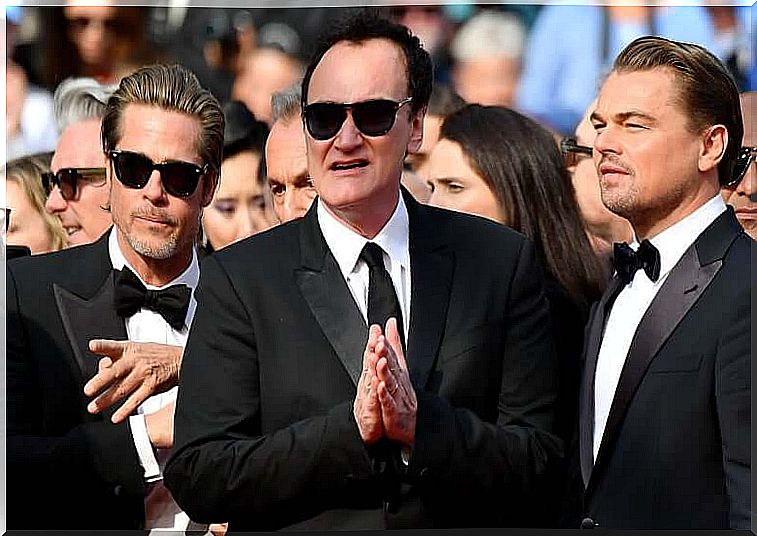
The epitome of a Tarantino ending
Warning: The rest of the article contains spoilers !!
Tarantino has given us a story about Hollywood’s past. A place where dreams come true, but where they too can disappear just as quickly. Stories of true people mixed with fiction, although the product of Tarantino’s imagination could very well have been real.
In fact, Once Upon a Time in Hollywood plays on what audiences know about this time period. Especially when it comes to the story of Charles Manson. Tarantino introduces us to the women of The Manson Family using a famous song, “I Neverll Never Say Never to Always”.
But does anyone really expect to see Sharon Tate’s tragic death at the end of a Tarantino movie? No, well. It would not be the kind of violence he likes. It must be aesthetic, entertaining and choreographed to music.
Although Sharon Tate is not one of the main characters in the film, Tarantino plays with blocking and composition, to get the viewer to follow her everywhere.
We get to know Sharon through the opinions of others about her and the way she interacts with her surroundings. Would Tarantino really make so much out of this character just so he could show her tragic death? Of course not. In fact, if one is really mindful, Tarantino gives us the ending right at the beginning of the film.
Rewriting of the story in Once Upon a Time in Hollywood
Thanks to a scene that directly refers to his film, Inglorious Basterds, Tarantino tells us a little secret. What was he doing now in Inglorious Basterds ? He rewrote history and took his artistic revenge on one of history’s most hated people. Tarantino killed Adolf Hitler himself.
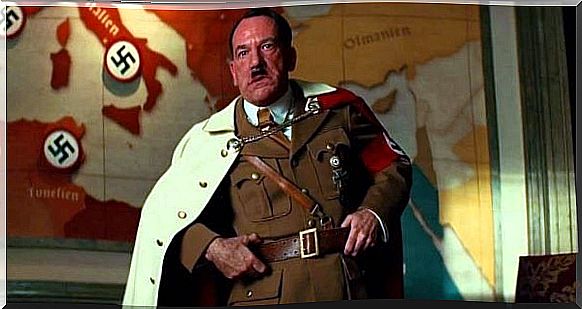
Following this reference, it is not difficult to put two and two together. No, you are not going to see raw, tragic and painful violence. Tarantino instead rewrites the story with “entertaining violence”. A dance of blood, fire and action!
This film is full of stories that may seem unrelated, yet meet in an eclectic ending. Tarantino is extremely meticulous with the details and constantly plays with the spectator.
Everything is possible in his film, and Once Upon a Time in Hollywood is a tribute to film, an ode to the seventh art, and a perfect example of Tarantino’s ability to tell stories, satirize reality, laugh at everything and above all enjoy life.
Although the redemption only comes late, the film is cleansing, consciousness-liberating and a tribute to what should have been.



